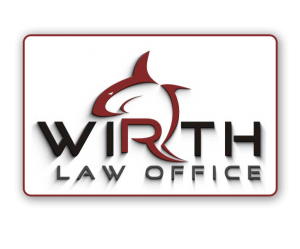US Supreme Court Ruled the Muskogee Creek Nation Reservation Was Never Disestablished
Video Transcribed:
Who prosecutes what in Northeast Oklahoma after the McGirt decision? I’m Tulsa attorney James Wirth. We’re about to talk about the jurisdictional issues from the precedent of McGirt. All right. The United States Supreme Court in the McGirt on July 9th of 2020 decided the Muskogee Creek Nation Reservation of the Treaty of 1866 was never disestablished when Oklahoma became a state.
So, all of that land, which includes most of Tulsa and surrounding counties, is actually still reservation land for the Muskogee Creek nation. But it doesn’t stop there because the rules applied to the 1866 Treaty of the Muskogee Creek Nation equally apply to all of the five civilized tribes that had similar treaties around that same timeframe and were dealt with similarly when Oklahoma became a state. All those tribes put together, we’re looking at most of Northeast Oklahoma. We can take a look at this map for those five civilized tribes it’s regarding.
All of that colored-in area there is now considered, based on the McGirt precedent, to be Indian reservation land. That includes residents about 1.8 million people and about half of the state. Okay. Now that we know that that is tribal land, that that’s Indian reservation land, who has the authority to prosecute? Okay. First off, we have the category of where we have a perpetrator or a defendant who is non-Indian, and we have a victim who is a non-Indian.
And if it’s a victimless crime, then you consider that to be non-Indian as well. In that scenario, nothing changes. For both major crimes and for misdemeanors and non-major crimes, the state of Oklahoma still has jurisdictions to prosecute those. Convictions in those categories over the last hundred years are not going to be disturbed. So, that stays the same. But now, if we’re dealing with where we have an Indian perpetrator or defendant, and we have an Indian victim, so what happens in those cases?
Well, it’s divided up based on whether it’s a major crime or not. If it is a major crime, then it’s going to be federal jurisdiction and tribal jurisdiction for some things, depending on the type of crime. If it is not a major crime, so for all other crimes where you have an Indian defendant and an Indian victim, it is going to be tribal. The tribe has exclusive jurisdiction on those, depending on where it occurred. It could be the Muskogee Creek tribe, could be Cherokee tribe, just depends on the location of where it occurred.
Next category is where you have an Indian perpetrator or defendant and you have a non-Indian victim. For that, similarly, if it’s a major crime, it’s going to be in federal court, or for some major crimes, it could be in tribal court jurisdiction. For all other crimes, non-major crimes, similarly to before, could be federal, could be tribal.
 But the important thing on both those and the previous categories is that it can’t be state court. The state courts have been trying people under these circumstances for hundred plus years when there was no jurisdiction. Just, we didn’t know it until the McGirt decision. But based on the McGirt decision, the state court never had subject matter jurisdiction, never had the authority to try those cases that fall into this category and the prior one.
But the important thing on both those and the previous categories is that it can’t be state court. The state courts have been trying people under these circumstances for hundred plus years when there was no jurisdiction. Just, we didn’t know it until the McGirt decision. But based on the McGirt decision, the state court never had subject matter jurisdiction, never had the authority to try those cases that fall into this category and the prior one.
All right. And then, we’ve got the last category, and that is where we have a non-Indian perpetrator or defendant, but we have an Indian victim. In those cases, if it is a major crime, it has to be tried in federal court. Can’t be tried in state court, can’t be tried in tribal court, must be tried in federal court. And then, for all other crimes, same scenario, has to be tried in federal court. Can’t be tried in state court, can’t be tried in federal court.
That pretty much lays it all out there. The question, then, comes up, “Okay, what is a major crime?” I’ve got another video on that, comes up, “Hey, how do we know… How does one determine whether they’re an Indian or not under the law?”
Got another video on that. And then, it also goes, “Well, how do we know whether the victim is an Indian or not?” Got another video on that, so you can check those out if you have those questions. If you have specific questions to your circumstances or the circumstances of a friend or family member, you’re going to want to talk to an attorney about the specifics of that. So, if you want to talk to somebody at my office, you can go to makelaweasy.com.



